Our colleagues at Skidmore have invited us to the following event that should be of broad interest:
Teaching and Learning for ALL Students: Building Universal Design for Learning (UDL) into Classrooms, Course Material, and Assessment Methods
Date: Friday, February 14, 2020
Time: 12:00-2:00 PM (lunch provided)
Location: Tang Teaching Museum, Payne Room
Nationally, students with disabilities represent 14% of college students and last year at Skidmore represented 15% of the student body. In order to provide access to the learning environment, common practice is to provide retrofit accommodations for individuals based on the disability. Universal Design for Learning (UDL) is the practice of designing teaching methodologies, curricular decisions, and assessment strategies to minimize the need for accommodations. Disability is often left out of conversations about diversity and inclusion, however the principles of UDL expands notions of inclusion and meets with diverse learning needs of all students.
The presentation will provide an overview of the principles of Universal Design and will include examples of ways in which we may make our classrooms, course materials, and assessment methods accessible and usable by all. The presentation will include time for discussion. Please bring with you questions you may have about student accommodations and how to make your classrooms, course materials, and assessment methods accessible for all.
Dr. Susan. M. Pliner is the Dean for Teaching, Learning, and Assessment, and Director of the Center for Teaching and Learning at Hobart and William Smith Colleges. In addition, she holds an Assistant Professor position in the Education Department and teaches in the Social Justice Studies Program.
Susan has a B.A. in Secondary Social Studies Education, a M.Ed. in Special Education, a CAGS in Social Justice Education, and an Ed.D. in Human Development. Her areas of specialty include; teaching and learning, intersectional pedagogy, multicultural and social justice education; universal instructional design; disability studies; and special education.
